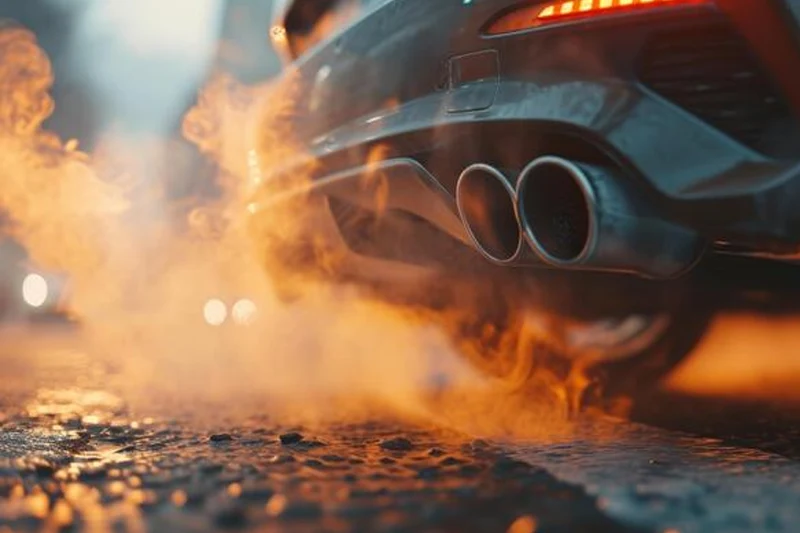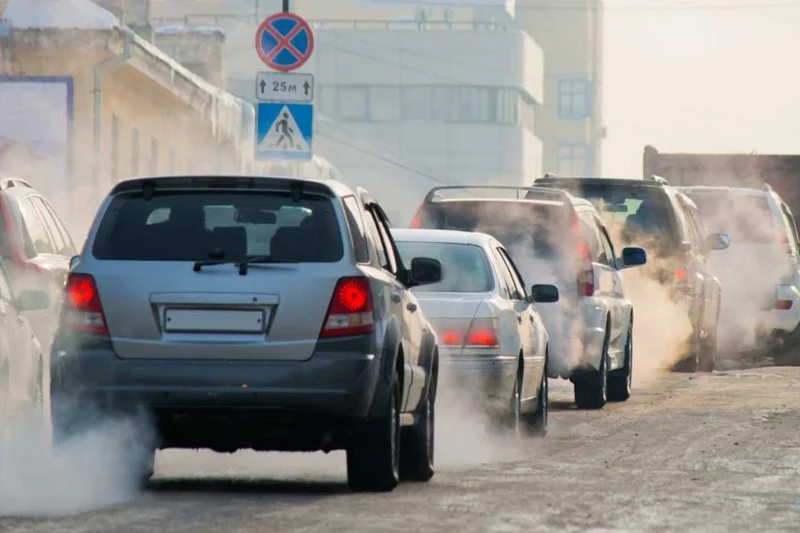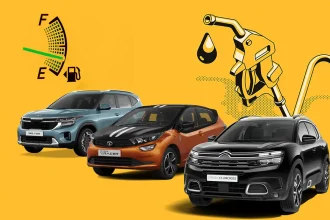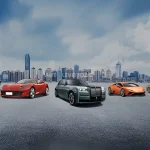Delhi, the capital of India, is famous worldwide, but not wholly for the right reasons. Recently, the city made it to the headlines because of challenges associated with pollution. The AQIs reaching hazardous degrees in numerous parts of the city not only caused debates and became a source of memes on social media but also highlighted the need for the right steps to correct this pressing issue!
Looking at the pollution trends and the highly congested traffic on the roads of Delhi in the past few months, one thing was apparent—the need for bold measures! Among these, a necessary step taken was the diesel car ban in Delhi.
In this article, we will discuss the top 10 reasons why Delhi diesel car ban rules have been imposed. We will also look at the different vehicles that are allowed in the city. So, read on!
Diesel Car Ban In Delhi Latest News Today

The latest news coming for Delhi in favor of the environment and because of the terribly high air quality indexes is about the BS4 diesel ban. The Delhi government emphasized the importance of taking the right measures to improve the quality of air in the city. While stating this, it was announced that using BS-3 petrol or BS-4 diesel cars in any part of the capital city is banned.
There is an intense debate going on whether no BS-4 diesel cars allowed in Delhi is a good decision or not. It is important for citizens to understand that this decision has been driven by many factors. All the restrictions imposed on Delhi city are under Stage III of the Graded Response Action Plan (i.e., the GRAP-III). These restrictions came into effect on 15th Nov, 2024 (Friday).
Under Section 194(1) of the Motor Vehicles Act of India 1988, all the violators of these regulations will face a strict punishment, which is a fine of ₹ 20,000.
The 10 Reasons Why Diesel Car Ban in Delhi Has Been Implemented
Here are the 10 most valid reasons behind the diesel car restrictions in Delhi:
- High Levels of Pollution: Delhi is the most polluted city in India, which intensifies the need to reduce the number of vehicles on the streets, especially those contributing to the “severe” AQI in the city.
- Increasing Smog: Diesel cars are also known to release NO2 (Nitrogen dioxide) and particulate matter into the environment. This leads to the formation of smog, which is toxic.
- Traffic Congestion: To reduce the traffic in the city, it is essential to impose the Delhi diesel car entry, especially for old, heavy, or commercial vehicles.
- Health Hazards: Anyone who is not living under a rock knows about the health problems caused by the increasing pollution in Delhi. Hence, in order to ensure better health for citizens, especially respiratory health, it is essential to impose such bans.
- Climate Change Concerns: The Delhi car restrictions can also be attributed to the severe changes observed in the climate in recent years, which is posing a great risk to the planet as a whole.
- Graded Response Action Plan (GRAP): The GRAP enforcement is paired with the Motor Vehicles Act, which dictates the laws associated with motor vehicles in our country. These are in favor of both the people and the environment of Delhi.
- Saving Fossil Fuels: The diesel car ban in Delhi will also help preserve fossil fuels across the city. Since these take hundreds or even millions of years to form, they are placed under the non-renewable resources category.
- Promotion of Cleaner Alternatives: When harmful diesel vehicles are totally eliminated from the roads of Delhi, cleaner alternatives such as public transportation and EVs will surface.
- More Emissions from Older Vehicles: One of the main reasons why there are Delhi car rules for pollution is that older vehicles are known to emit more harmful substances in comparison to newer ones. The consequence of these emissions is that they compromise human health in many ways.
- International Commitments: The Indian Government has several international commitments with other countries, which require us to reduce emissions from our country. One example is the Paris Agreement, whose goal is to combat climate change.
Are Bikes Banned Too?
No, bikes are not banned in Delhi as per the GRAP-III protocols of November 2024.
Types Of Vehicles Allowed In Delhi As Per The New Policies
According to the latest Delhi car rules dictated by the Graded Response Action Plan (GRAP) Stage III, the following are NOT allowed entry:
- BS-3 petrol light motor vehicles
- BS-4 diesel light motor vehicles
- Below BS-3 medium-good vehicles that are diesel-operated (those carrying essential goods and services are exempt)
- Diesel light commercial vehicles that are not from Delhi (exemption for essential goods and services carrying automobiles)
- NCR states’ inter-state buses below BS-4 diesel standards
Any other vehicle apart from these is allowed in the city, such as CNG vehicles, EVs, bikes, scooters, etc. It is also important to note that inter-state vehicles with an All-India Tourist Permit are allowed to enter Delhi according to the latest Delhi diesel car ban.
Conclusion
Those were all the details for the regulations related to the diesel car ban in Delhi and the top 10 reasons validating them. Protecting the environment is every citizen’s responsibility, and these measures are in place to ensure that the already severe AQI of the capital city of India doesn’t intensify further.
So, when are you checking your diesel car validity in Delhi?
Frequently Asked Questions ( FAQs)
Why is a diesel car ban in Delhi?
The BS4 diesel ban in Delhi is to protect the environment and improve the AQI of the city, and it has been implemented as a measure to battle climate change.
Are all diesel cars banned in Delhi?
No, all cars are not banned from entering Delhi according to the GRAP-Stage-III. Only BS-3 petrol and BS-4 diesel motor vehicles are banned.
Can I buy a 10-year-old diesel car in Delhi?
A 10-year-old diesel car falls in the BS-4 category, which means that you cannot drive it in Delhi, which is why you shouldn’t buy it.
Will all diesel-engine cars be banned in the future?
Although there is a lot of stir regarding the ban of all diesel-operated cars in India by 2027, no official notice has been issued yet regarding this. Nevertheless, the Delhi car rules for pollution are an indication that awareness of their effects is increasing and that the government is taking stringent action to control further damage to the climate.
Is the BS-4 diesel ban lifted?
No, the BS4 diesel ban in Delhi has been effective since 15th Nov 2024, and it has not been lifted yet.











